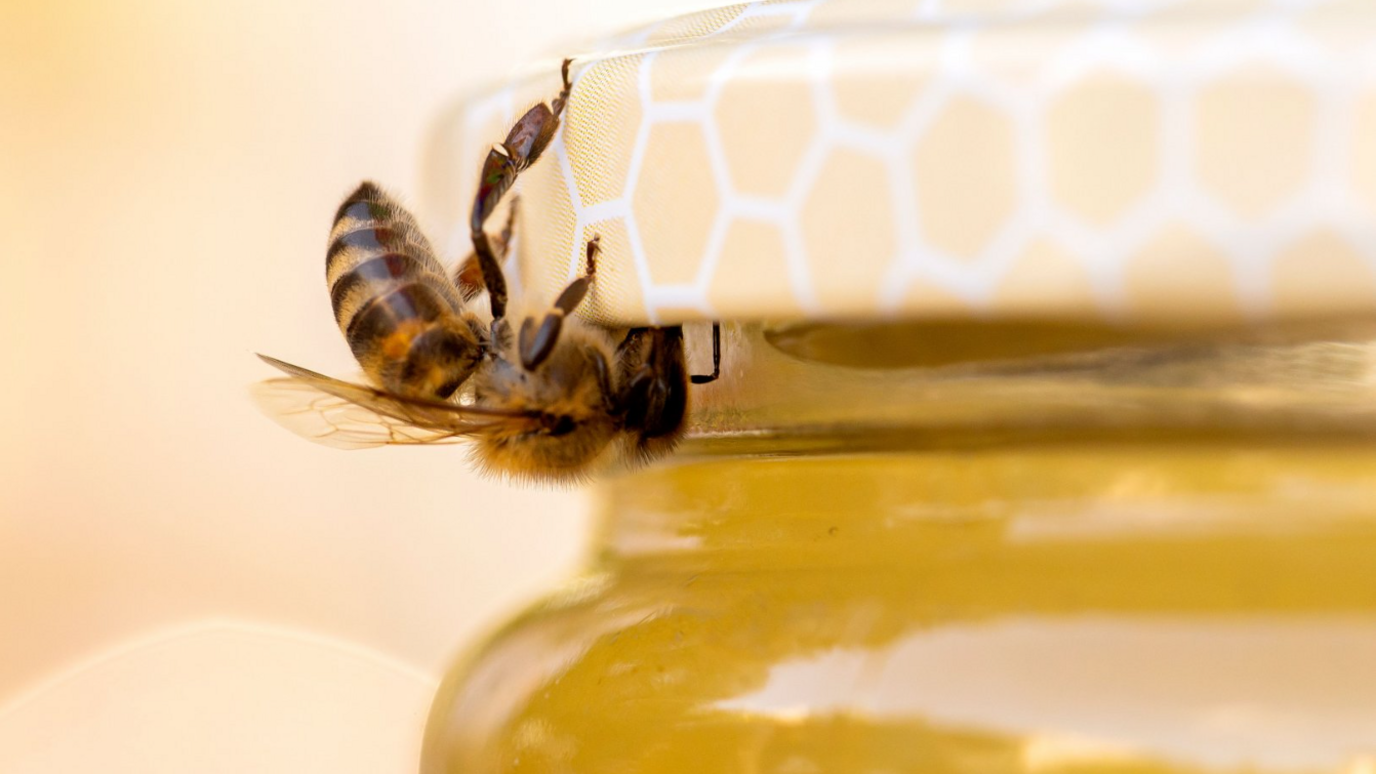World Beekeeping Awards axe honey prize due to fraud

- Published
The World Beekeeping Awards have announced that there will not be any prizes for honey next year because of concerns about fraud in the global supply chain.
It'll be the first time that the popular cupboard staple has been excluded from the event.
Apimondia - the International Federation of Beekeepersâ Associations - said in a statement that the change was "necessitated by the inability to have honey fully tested for adulteration".
This decision comes after previous years' events proved that "adequate testing was impossible" as well as recent investigations which showed the sticky situation that importers have found themselves in.
In March 2023, the European Commission found that 46% of sampled products (including all 10 samples from the UK) were suspected to be fraudulent - meaning they had likely been bulked out with cheaper sugar syrups.
Scientists at Cranfield University then said in August this year that they had found a way to detect fake honey products without opening the jar.
Project leader, Dr Anastasiadi, said: "Our study showed this is a sensitive, reliable and robust way to detect adulteration and confirm the origins of syrups.
"Having this consistent technique in the testing armoury could take the sting out of honey fraud."
It's too soon to make any promises for the World Beekeeping Awards at the 2025 Congress, though Apimondia said it still planned to celebrate honey in many ways.
"From Copenhagen forward we will look to celebrate honey by promoting regional honeys via a 'honey map'â.
This map will supposedly allow beekeepers, scientists and interested parties alike to "discover the unique flavours of Scandinavian honeys. Explore how the (unique) geographical and climatic conditions in Scandinavia influence the taste of honey and get to know the stories behind the honey from [this] region."
Jeff Pettis, the federationâs president, said that they were "continuing to fight for improvements to the testing" and that he wanted "the public to know that local honey is much less likely to be adulterated."
A spokesperson for the Department for Environment, Food and Rural Affairs (Defra) said: âWe take any type of food fraud very seriously. We work closely with enforcement authorities to ensure that honey sold in the UK is not subject to adulteration, meets our high standards, and maintains a level playing field between honey producers.â
Related topics
- Published17 August
- Published2 October